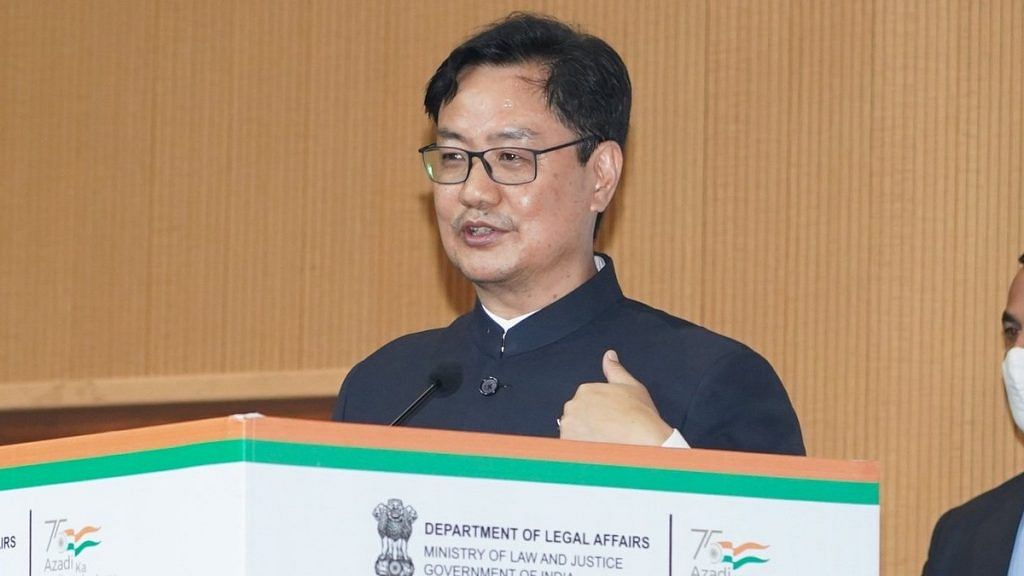New Delhi: Union law minister Kiren Rijiju Thursday said it was disturbing to see “certain elements” oppose the implementation of laws that are passed by the Parliament in accordance with the provisions of the Constitution.
Speaking at the launch of an online course on the Indian Constitution, Riiju also criticised these “elements” for imposing their “thoughts and ideas on others.”
He acknowledged that as citizens of a democratic country Indians have the right to oppose, differ and dissent. But at the same time, he added, whatever is done constitutionally must be respected.
“It is well known that there are many elements in our country who will always try to create certain problems within our country,” Rijiju said.
Though the minister did not elaborate further, his statement is significant as it comes in the backdrop of the central government’s move to repeal the three contentious farm laws against which farmers have been protesting for more than a year.
The Union Cabinet Wednesday cleared the bill to be introduced in the Winter Session of the Parliament to roll back the laws.
Though the implementation of the farm laws was put on hold by the Supreme Court in January this year, the farmers had refused to call off the protests till their demand to repeal the laws was met.
Rijiju said if one abides by the Constitution then he/she should not oppose the law if the Parliament passes it and assemblies adopt it.
“These elements which try to create certain disturbances in our society when Parliament passes a Bill and assembly adopts a law have no reason to say we will not follow the Act unless it is unconstitutional,” he said.
The Union minister added it was for the judiciary to decide whether an act is constitutional or unconstitutional, and not the private citizens.
“Till judiciary pronounces it this way or that way, why should we try to impose our thoughts or ideas on others? India is a very democratic country, we have the right to oppose and differ in opinion, we have the right to dissent but anything done constitutionally must be respected by all,” he said.
Also read: Farm laws debate missed a lot. Neither supporters nor Modi govt identified the real problem
Debates & discussions in Parliament
He said it has become a fashion for “some elements” to charge the government for not following the Constitution or to propagate that a law passed validly is unconstitutional. And such elements were emerging more in the “deeper areas” of the country, which the minister described as “very disturbing.”
Debates and discussions on laws were a subject matter of the Parliament, Rijiju emphasised. Talking about the times when BJP was in the opposition, he said the party did oppose the passing of laws in the Parliament.
“We used to debate, discuss and oppose, but finally when it became a law, we always kept silent and quiet,” he said.
He maintained that opposition to a law at the time of its discussion in the Parliament is the correct approach, but when the same becomes a law and is not implemented then it can lead to “some kind of crisis in the country.” He urged there was a need to ponder over such a “critical situation” and find a solution.
The minister emphasised the need for citizens to understand the values of fundamental duties prescribed in the Constitution. He said if we all “are conscious about our duties, devote and adhere to them, then fundamental rights would automatically be protected.”
“We would not infringe upon somebody’s rights if we know our duties. A fundamental right is personal but a duty is for the society and the country,” he said.
Also read: Farm laws repeal a chance to build consensus, it’s a bad idea to stop reform train, say experts
